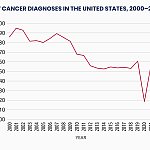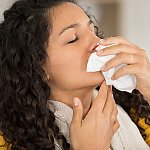
Changes could be coming later this year to vaccination policies for COVID-19 and other infectious diseases.
An advisory panel for the Centers for Disease Control and Prevention (CDC) met last week to consider immunization recommendations. The panel was slated to convene in February, but the meeting was postponed after Robert F. Kennedy Jr. was confirmed as secretary of the Department of Health and Human Services (HHS).
Under the direction of the new Health Secretary, members of the
That risk-based assessment would differ from the
The advisory panel also discussed the possibility of reducing the number of recommended doses for the vaccine against the human papillomavirus (HPV). The CDC
The ACIP members voted to recommend that high risk adults ages 50 to 59 get vaccinated against respiratory syncytial virus (RSV). The current
The panel is expected to vote on the COVID-19 and other vaccination recommendations in June. In the past, CDC officials have usually implemented the suggestions made by the panel of experts.
Experts say changes in vaccine recommendations could impact both an individual’s health and public health in general.
“We’re talking about personal health as well as public health,” David Cutler, MD, a family medicine physician at Providence Saint John’s Health Center in California, told Healthline. “These are respiratory illnesses that can kill people.”
Cutler says relaxing standards for certain vaccinations might also give people an excuse to skip immunizations.
“It can make vaccinations confusing and open to debate,” he said. “It could influence some people on why they shouldn’t get vaccinated.”
Cutler added that a lower vaccination rate could affect herd immunity and increase risk for people with compromised immune systems and other conditions.
“We could have tens of thousands of deaths that were unnecessary,” he said.
Inderpal Randhawa, MD, an internist, immunologist, pediatrician, pediatric pulmonologist, and medical director of the Children’s Pulmonary Institute at MemorialCare Miller Children’s & Women’s Hospital Long Beach in California, noted these panel meetings discuss important public health issues.
“The discussion around vaccine recommendations boils down to a basic question of risk and benefit,” Randhawa told Healthline. “The risk of a disease to one individual versus the risk of a disease to society. The benefit of the vaccine to one individual versus the benefit of preventing disease spread to a community.”
“The facts show reactions and side effects to vaccines do occur and can be serious as we have seen with the COVID vaccine,” he added. “However, the effectiveness at preventing the widespread transmission of disease when at least 90 percent of society maintains immunity (often through vaccine mandates) is also compelling.”
Although the pandemic has subsided,
The CDC reports that more than 40,000 people in the United States died from COVID-19 in 2024. So far in 2025, the weekly COVID-19 death rate ranges from more than 1,000 in mid-January to less than 200 in mid-April.
“This is still a very serious infectious disease,” Cutler said.
Randhawa says a change in COVID-19 vaccination policy, however, might be warranted.
“COVID-19 will continue to circulate for the next decade or potentially longer. Though widespread native immunity exists, the virus is still a threat to immunocompromised individuals in specific settings,” he said.
“Maintaining availability of high quality COVID-19 vaccines is critical. However, widespread use of the vaccine by the general public will likely not be needed.”
Cutler said the RSV vaccine is a “very effective vaccine,” although it can produce some
The flu vaccine wasn’t discussed in depth at last week’s panel meetings, but experts say it is an important component of public health.
They note that influenza presents some unique challenges.
“Influenza is a particularly challenging virus as it mutates in a seasonal pattern. The rate of change to the mutations can impact how quickly influenza can spread,” said Randhawa. “Especially in the elderly, the flu vaccine program is critical.”
Cutler noted that 90% of flu cases occur in the United States between November and March. He said a strong flu season can increase the number of people in emergency rooms and other medical settings, which could make treating other patients more difficult. “It can overwhelm the healthcare system,” he said.
William Schaffner, MD, an infectious disease expert and a professor of medicine at Vanderbilt University in Tennessee, says the public should take advantage of the vaccines and the preventive measures they offer.
“COVID, influenza and RSV viruses cause regular epidemics that result in millions of illnesses, hospitalizations and intensive care unit admissions and thousands of deaths each year,” he told Healthline.
“The vaccines against those viruses, although not perfect, offer protection against the more severe illnesses. The vaccines are safe and I would urge all eligible persons to take advantage of them. They are substantially underused.”





